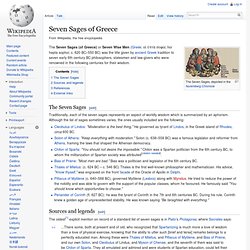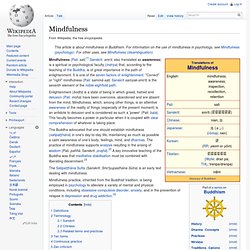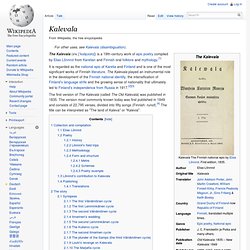

Democritus. Democritus (/dɪˈmɒkrɪtəs/; Greek: Δημόκριτος Dēmókritos, meaning "chosen of the people"; c. 460 – c. 370 BC) was an influential Ancient Greek pre-Socratic philosopher. He is primarily remembered today for his formulation of an atomic theory of the universe.[3] Democritus was born in Abdera, Thrace[4] around 460 BC. His exact contributions are difficult to disentangle from those of his mentor Leucippus, as they are often mentioned together in texts. Their speculation on atoms, taken from Leucippus, bears a passing and partial resemblance to the nineteenth-century understanding of atomic structure that has led some to regard Democritus as more of a scientist than other Greek philosophers; however, their ideas rested on very different bases.[5] Largely ignored in ancient Athens, Democritus was nevertheless well known to his fellow northern-born philosopher Aristotle. Life[edit] After returning to his native land he occupied himself with natural philosophy.
Philosophy and science[edit] Seven Sages of Greece. The Seven Sages (of Greece) or Seven Wise Men (Greek: οἱ ἑπτὰ σοφοί, hoi hepta sophoi; c. 620 BC–550 BC) was the title given by ancient Greek tradition to seven early 6th century BC philosophers, statesmen and law-givers who were renowned in the following centuries for their wisdom.

The Seven Sages[edit] Traditionally, each of the seven sages represents an aspect of worldly wisdom which is summarized by an aphorism. Although the list of sages sometimes varies, the ones usually included are the following: Cleobulus of Lindos: "Moderation is the best thing. " He governed as tyrant of Lindos, in the Greek island of Rhodes, circa 600 BC.Solon of Athens: "Keep everything with moderation. " Sources and legends[edit] Diogenes points out, however, that there was among his sources great disagreement over which figures should be counted among the seven.[5] Perhaps the two most common substitutions were to exchange Periander or Anacharsis for Myson.
References[edit] External links[edit] Mindfulness. Mindfulness (Pali: sati,[1] Sanskrit: smṛti; also translated as awareness) is a spiritual or psychological faculty (indriya) that, according to the teaching of the Buddha, is of great importance in the path of enlightenment.

It is one of the seven factors of enlightenment. "Correct" or "right" mindfulness (Pali: sammā-sati, Sanskrit samyak-smṛti) is the seventh element of the noble eightfold path. The Buddha advocated that one should establish mindfulness (satipaṭṭhāna) in one's day-to-day life, maintaining as much as possible a calm awareness of one's body, feelings, mind, and dharmas. The practice of mindfulness supports analysis resulting in the arising of wisdom (Pali: paññā, Sanskrit: prajñā).[2] A key innovative teaching of the Buddha was that meditative stabilisation must be combined with liberating discernment.[3] The Satipaṭṭhāna Sutta (Sanskrit: Smṛtyupasthāna Sūtra) is an early text dealing with mindfulness.
Definitions[edit] What is smṛti? Terminology[edit] John D. Chinese[edit] Kalevala. The Kalevala (IPA: [ˈkɑle̞ʋɑlɑ]) is a 19th-century work of epic poetry compiled by Elias Lönnrot from Karelian and Finnish oral folklore and mythology.[1] It is regarded as the national epic of Karelia and Finland and is one of the most significant works of Finnish literature.

The Kalevala played an instrumental role in the development of the Finnish national identity, the intensification of Finland's language strife and the growing sense of nationality that ultimately led to Finland's independence from Russia in 1917.[2][3] The first version of The Kalevala (called The Old Kalevala) was published in 1835. The version most commonly known today was first published in 1849 and consists of 22,795 verses, divided into fifty songs (Finnish: runot).[4] The title can be interpreted as "The land of Kaleva" or "Kalevia". Collection and compilation[edit] Elias Lönnrot[edit] Elias Lönnrot (9 April 1802 – 19 March 1884) was a physician, botanist and linguist.
Poetry[edit]